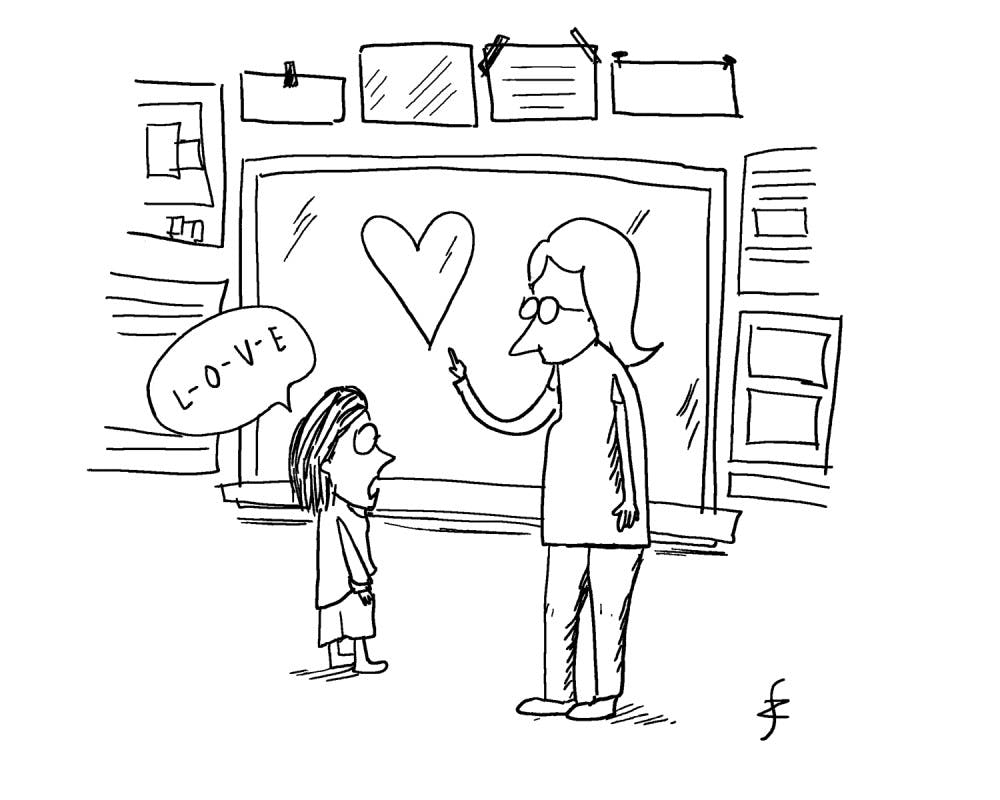The U.S. Department of Education awarded the Rhode Island Department of Education a federal grant of $2.5 million last week to finance measures to meet public school students’ social and emotional needs. The grant complements a $9 million federal grant awarded in early September to expand mental health resources, said RIDE Communications Director Megan Geoghegan.
Grants of this size do not come around “that often. This is pretty big money,” Geoghegan said. While it is more common for the department to receive grants ranging from $500,000 to $1 million, “to get in the multimillions is not super common,” she explained. Every state tends to apply for federal grants, which creates competition.
Chair of Education Policy Kenneth Wong noted that the grant adds statewide support to the Providence Public School Department’s investment in social and emotional learning.
“The federal grant provides critically important and timely resources for PPSD’s SEL initiative, given the need for professional support in this area,” Wong wrote in an email to The Herald.
The grant’s focus on social and emotional learning reflects the state’s increased attention to how student well-being impacts academic outcomes. Social and emotional learning “is something that is getting a lot more attention now than in the past few years,” Geoghegan said. “A lot of state education agencies (and) a lot of school districts are paying attention to it, so I’m not surprised that it would be a competitive landscape with this particular grant.”
Both national and statewide surveys show “that students (now) tend to be more stressed than they have in years past,” Geoghegan said.
“This grant was written so that there would be a particular focus for children with or at risk of behavioral health issues, including substance use disorders,” Geoghegan added, though ideally it will benefit all students.
The Office of Student, Community and Academic Supports within RIDE obtained the grant, Geoghegan said. The team crafted a proposal and received approval within just four weeks, she added in a follow-up email to The Herald.
RIDE will distribute funding to districts rather than to individual schools, a decision meant to create robust infrastructure that will endure after the grant’s money dries up, Geoghegan said. RIDE has not yet determined how it will distribute this funding across districts or which districts will be selected, she wrote in a follow-up email to The Herald, adding that these processes would be clarified around the beginning of November.
Different districts will have different needs that must be individually assessed and addressed, Geoghegan added.
She hopes some of the funding will be used to expand programs already in place, such as Positive Behavioral Interventions and Supports, which structures “positive reinforcement and how you reward good behavior. … So, those programs already exist; however, we’re going to scale them up,” she said.
RIDE partnered with the Center for Leadership and Educational Equity and the Northern Rhode Island Collaborative to design a proposal for the grant. Through this proposal, the collaborators will primarily aid “professional development,” an initiative that will likely account for “a really significant piece” of how the grant is used, she said.
CLEE will be working with nine schools across districts to explore different approaches to social and emotional learning measures, said CLEE Executive Director Donna Braun. CLEE will begin by working with groups of students who have been underserved and “then start to move … to the larger school community,” she added.
Braun explained that CLEE’s idea of professional development has its own twist: Whereas traditional professional development involves workshops and discussion where participants “are learning from content,” CLEE works to bring “teams’ leaders together in more of a networking format for people to learn from each other,” Braun said. She added that this technique helps schools discover their own problems and solutions.
The most challenging aspect of improving SEL in schools is not figuring out which programs to implement, but figuring out how to change everyday practice, she added.
This is “incredibly significant for Rhode Island,” Braun said, because it acknowledges the quality of what the state’s educational institutions already have to offer. CLEE recognizes teachers as “highly skilled professionals who have an immense, endless capacity to learn and improve together.”
Support of social and emotional education is essential to improve the quality of students’ academic experiences, Braun said. “The things we can do to improve social-emotional learning and mental health are the things that will help students” with their academic performances, she said.
Geoghegan concurred. “There’s a recognition that if we’re not caring for the whole student, then we can’t possibly support them academically. If a student doesn’t feel safe, if they don’t feel supported, if they’re anxious all the time, that’s going to affect their achievement as well; really, one has to come with the other, and there’s a growing recognition of that,” she said.





